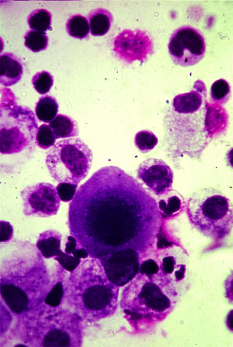Lab-grown tumours offer options
 Australian researchers have developed a method to grow tumours in the laboratory.
Australian researchers have developed a method to grow tumours in the laboratory.
The new approach by experts at the Walter and Eliza Hall Institute of Medical Research (WEHI), harnesses tumour organoids - three-dimensional cancer models cultivated from a patient's own tissue.
These organoids provide a glimpse into how an individual might respond to specific cancer therapies.
A forthcoming clinical trial, inspired by the results of this world-first study, seeks to validate organoid drug testing as a reliable method for tailoring treatment selections for individuals grappling with Australia's second-most deadly cancer: bowel cancer.
The latest WEHI study shows organoid drug testing can have an 83 per cent success rate in predicting the treatment response among advanced bowel cancer patients.
The study marks the first instance worldwide where patient-derived tumour organoids have been used to pre-assess the efficacy of treatment options, potentially paving the way for novel therapeutic avenues for those battling bowel cancer.
A clinical trial is set to commence this year to evaluate if organoid drug testing can transform cancer care, offering a more personalised treatment approach.
Despite the high success rate of bowel cancer treatment when detected early, a significant challenge remains: less than half of the cases are diagnosed at an early stage, often due to the absence of symptoms. Consequently, many patients are only identified once the cancer has metastasised.
The traditional method of selecting cancer treatments has often involved a degree of trial and error, which can be detrimental to the patient's chances of recovery.
“Each time you give a patient an ineffective treatment, you lose 2-3 months on something that won’t work,” explained Professor Peter Gibbs, co-lead researcher and medical oncologist at WEHI.
The development of tumour organoids represents a potential paradigm shift, offering a method to significantly enhance the accuracy of treatment selection and, by extension, patient outcomes.
Tumour organoids, miniature 3D models of cancer the size of a grain of sand, are grown in a laboratory from a patient’s tissue sample.
These organoids replicate the cancer's characteristics, including its sensitivity to drug treatment, allowing researchers to identify the most suitable treatment for individual patients.
“Our findings show that organoid drug testing is a potential game-changer for cancer treatment,” said Professor Gibbs.
The implications of this research are vast, not only in predicting treatment outcomes but also in identifying new treatment options.
For example, the study discovered that two patient organoids were sensitive to a drug typically used for breast and bladder cancers, indicating the technology's potential to uncover novel therapeutic options.








 Print
Print